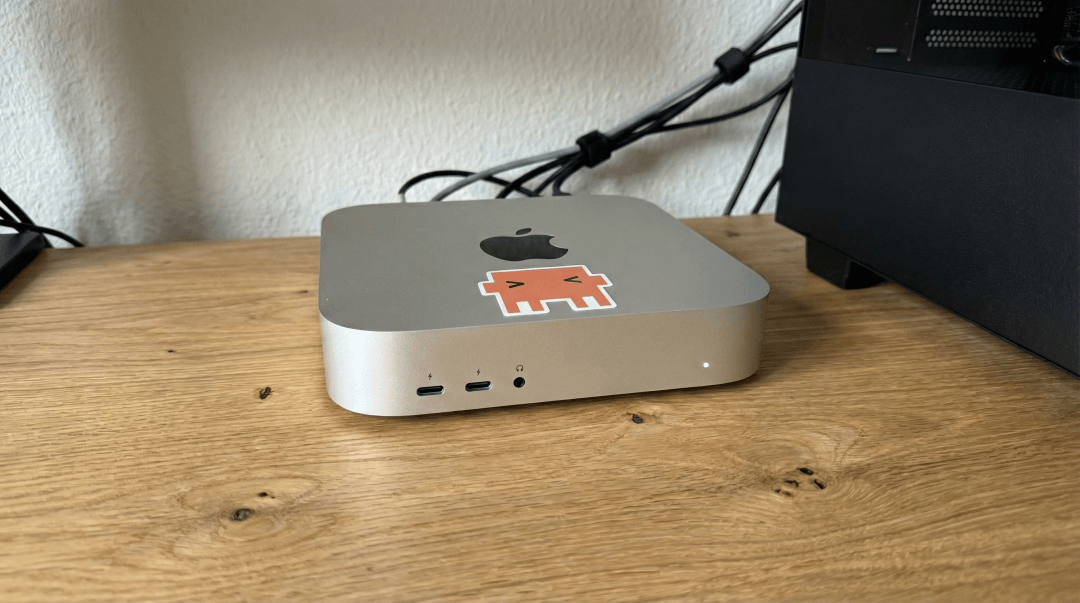The best customer service software for an e-commerce help desk centralizes customer interactions across email, chat, phone, and social channels while providing automation, integration capabilities, and analytics to streamline support operations. With e-commerce customer service expectations rising, businesses need platforms that deliver faster resolutions, reduce operational costs, and scale with growth.
Modern e-commerce help desk software combines ticketing systems, AI-powered automation, and omnichannel support to manage customer inquiries efficiently. These platforms integrate directly with e-commerce systems like Shopify, Magento, and WooCommerce, giving agents instant access to order history, shipping details, and customer data for faster problem resolution.
This guide profiles seven leading customer service platforms, each designed for different business sizes and operational needs. From AI-driven automation to collaborative team features, these solutions address the unique challenges e-commerce businesses face in delivering exceptional customer support at scale.
What is an E-commerce Help Desk?
An e-commerce help desk is a centralized customer support system specifically designed to handle the unique requirements of online retail businesses. Unlike traditional help desk software, e-commerce help desks integrate directly with online stores, shopping carts, and payment systems to provide context-rich customer support.
These specialized platforms manage customer inquiries related to orders, shipping, returns, product questions, and technical issues while maintaining complete visibility into customer purchase history and account details. E-commerce help desks consolidate support channels including email, live chat, phone, social media, and self-service portals into a unified interface.
The primary distinction lies in their deep integration capabilities with e-commerce platforms like Shopify, WooCommerce, Magento, and BigCommerce. This integration enables support agents to access real-time order information, process refunds, update shipping details, and resolve account issues without switching between multiple systems.
Key Capabilities of E-commerce Help Desk
Modern e-commerce help desk platforms provide comprehensive functionality tailored to online retail support requirements:
Capability Category | Key Features | Description |
Omnichannel Communication Management | Unified inbox, Automatic ticket creation, Context preservation, Mobile-optimized interfaces | Unified inbox for email, chat, phone, and social media inquiries with automatic ticket creation from multiple touchpoints, context preservation across channel switches, and mobile-optimized customer interfaces |
E-commerce Platform Integration | Real-time order access, Direct refund processing, Inventory visibility, Account management | Real-time order status and history access, direct refund and exchange processing, inventory level visibility for accurate responses, and customer account management capabilities |
AI-Powered Automation | Intelligent routing, Automated responses, Sentiment analysis, Predictive analytics | Intelligent ticket routing based on inquiry type and urgency, automated responses for common questions, sentiment analysis for proactive issue identification, and predictive analytics for demand forecasting |
Knowledge Management | FAQ repositories, Self-service portals, Internal knowledge bases, Dynamic content suggestions | Centralized FAQ and help article repositories, self-service customer portals, internal knowledge bases for agent reference, and dynamic content suggestions based on inquiry context |
Performance Analytics | Response time tracking, Customer satisfaction scoring, Agent performance metrics, ROI measurement | Response time and resolution rate tracking, customer satisfaction scoring and trends, agent performance metrics and coaching insights, and ROI measurement and operational cost analysis |
Key Benefits of E-commerce Help Desk
Implementing specialized e-commerce help desk software delivers measurable improvements across customer experience and operational efficiency:
Benefit Category | Key Advantages | Impact |
Enhanced Customer Experience | Faster resolution times, Consistent service quality, Proactive issue prevention, 24/7 support availability | Faster resolution times through integrated order access, consistent service quality across all communication channels, proactive issue prevention through automated monitoring, and 24/7 support availability via AI-powered chatbots |
Operational Efficiency Gains | Reduced manual data entry, Automated routine tasks, Streamlined workflows, Improved first-contact resolution | Reduced manual data entry through platform integrations, automated routine task handling decreasing agent workload, streamlined workflows eliminating system switching, and improved first-contact resolution rates |
Scalability and Growth Support | Flexible user licensing, Cloud-based infrastructure, Automated capacity management, Global multilingual support | Flexible user licensing accommodating team expansion, cloud-based infrastructure handling traffic spikes, automated capacity management during peak seasons, and global multilingual support for international expansion |
Cost Optimization | Lower operational costs, Reduced training time, Decreased escalation rates, Improved agent productivity | Lower operational costs through automation, reduced training time with intuitive interfaces, decreased escalation rates via better first-line support, and improved agent productivity and utilization rates |
Data-Driven Insights | Customer behavior identification, Support trend analysis, Performance benchmarking, ROI tracking | Customer behavior pattern identification, support trend analysis for proactive planning, performance benchmarking against industry standards, and ROI tracking and optimization opportunities |
1. Solvea
Solvea delivers an AI-powered customer experience platform specifically engineered for mid-market to enterprise e-commerce retailers requiring multilingual support and seamless workflow integration. The platform combines AI voice and chat agents with comprehensive help desk functionality, managing everything from logistics inquiries to technical troubleshooting.
Key differentiators include:
- Multilingual AI agents supporting global e-commerce operations
- Native integration with existing e-commerce platforms and workflows
- Advanced automation reducing support costs by up to 40%
- Enterprise‑grade security with SOC 2 compliance
- Measurable ROI tracking with detailed performance analytics
Solvea addresses critical pain points like fragmented support systems and high operational costs through unified customer experience management. The platform's AI capabilities learn from customer interactions to improve response accuracy and reduce escalation rates.
Pros:
- Advanced AI capabilities with multilingual support
- Deep e-commerce platform integrations
- Proven ROI with up to 40% cost reduction
- Enterprise-grade security and compliance
- Comprehensive analytics and reporting
Cons:
- Higher pricing point for smaller businesses
- Complex implementation for simple use cases
- May require technical expertise for full optimization
Pricing: Solvea offers custom enterprise pricing based on business requirements, team size, and feature needs. Contact their sales team for detailed pricing information and implementation planning.
Best for: Mid-market to enterprise e-commerce companies with complex, multilingual support needs requiring measurable ROI and seamless platform integration.
2. Zoho Desk
Zoho Desk provides cost-effective, automation‑driven customer service with robust multi-channel ticketing capabilities. Starting at $7 per user per month, it offers exceptional value for growing e-commerce businesses.
Core automation features:
- Context‑aware ticket routing and prioritization
- AI‑powered chatbots for instant customer responses
- Sentiment analysis for proactive issue identification
- Automated workflow triggers based on customer behavior
- Advanced reporting with customizable dashboards
Zoho Desk's integration capabilities extend beyond the Zoho ecosystem, connecting with popular e-commerce platforms, CRM systems, and third‑party tools. The platform's Blueprint feature creates standardized processes for consistent service delivery across teams.
The ticketing system aggregates inquiries from email, phone, chat, social media, and web forms into a unified interface. Agents can track customer history, set automated responses, and collaborate on complex issues without switching platforms.
Pros:
- Excellent value with comprehensive features at low cost
- Strong automation and workflow capabilities
- Extensive third-party integrations
- User-friendly interface and setup
- Robust reporting and analytics
Cons:
- Limited customization options compared to enterprise solutions
- AI capabilities less advanced than specialized platforms
- Some advanced features require higher-tier plans
Pricing:
- Standard: $7/agent/month (basic ticketing and automation)
- Professional: $15/agent/month (advanced automation and reporting)
- Enterprise: $25/agent/month (custom fields and advanced analytics)
Best for: Small to medium e-commerce businesses seeking comprehensive automation features at competitive pricing with strong integration capabilities.
3. Freshdesk
Freshdesk streamlines customer support by unifying tickets from email, chat, phone, and social media into a single management hub. This consolidation eliminates channel switching and provides agents with complete interaction history for faster resolution.
Freddy AI reduces average resolution time by 93% by learning from existing knowledge bases and suggesting relevant solutions to both agents and customers. The AI analyzes ticket content, customer history, and past resolutions to recommend appropriate responses and routing decisions.
Multi-channel capabilities:
- Email integration with automated ticket creation
- Live chat with proactive engagement triggers
- Phone support with call logging and recording
- Social media monitoring across major platforms
- Community forums for self‑service support
Feature | Channels Supported | Starting Price |
Ticket Management | Email, Chat, Phone, Social | $15/agent/month |
AI Automation | All channels | $25/agent/month |
Advanced Analytics | All channels | $35/agent/month |
Analytics and reporting features provide insights into response times, resolution rates, and customer satisfaction scores. Teams can track performance metrics, identify bottlenecks, and optimize workflows based on data‑driven insights.
Pros:
- Comprehensive multi-channel support
- Powerful AI automation with Freddy AI
- Strong analytics and reporting capabilities
- Intuitive user interface
- Extensive marketplace of integrations
Cons:
- Higher pricing for advanced AI features
- Some customization limitations
- Phone support requires additional setup
Pricing:
- Growth: $15/agent/month (basic multi-channel support)
- Pro: $25/agent/month (AI automation and advanced features)
- Enterprise: $35/agent/month (custom reporting and security)
Best for: E-commerce businesses requiring unified multi‑channel support with strong AI capabilities and comprehensive analytics.
4. Intercom
Intercom excels in delivering conversational, real‑time customer support through advanced AI capabilities. The platform combines its AI Fin agent with comprehensive help desk tools to provide superior customer support starting at $25 per agent per month.
AI‑powered help desk software uses artificial intelligence to automatically respond to common inquiries, route tickets based on content and priority, and escalate complex issues to human agents in real time. This approach reduces response times and improves customer satisfaction through personalized interactions.
Real-time support features:
- Instant AI responses to common e-commerce questions
- Smart ticket routing based on customer context
- Proactive messaging triggered by user behavior
- Live chat with co‑browsing capabilities
- Mobile‑optimized customer interface
Intercom's AI learns from each interaction to improve response accuracy and identify patterns in customer inquiries. The platform provides context‑aware suggestions to agents, including relevant help articles, previous conversations, and customer data.
The Resolution Bot handles routine inquiries automatically while seamlessly transferring complex issues to human agents with full context. This hybrid approach maintains personal touch while maximizing efficiency.
Pros:
- Advanced conversational AI capabilities
- Real-time support with proactive messaging
- Excellent user experience and interface design
- Strong mobile optimization
- Comprehensive customer data integration
Cons:
- Higher pricing compared to basic help desk solutions
- Limited traditional ticketing features
- May be complex for simple support needs
Pricing:
- Essential: $25/seat/month (basic messaging and automation)
- Advanced: $65/seat/month (AI features and advanced automation)
- Expert: $99/seat/month (advanced AI and custom integrations)
Best for: E-commerce businesses prioritizing real‑time, conversational support with advanced AI automation for immediate customer engagement.
5. Gorgias
Gorgias specializes in e‑commerce customer service through its collaborative shared inbox system, enabling seamless teamwork and centralized communication management. The platform integrates deeply with major e‑commerce platforms for context‑rich customer interactions.
Shared inbox system creates a single, collaborative workspace where team members can view, assign, and respond to customer queries with clear accountability and efficient handoff processes. This eliminates duplicate responses and ensures consistent service quality.
E‑commerce integration features:
- Direct Shopify, Magento, and BigCommerce connections
- Order information displayed alongside customer inquiries
- Automated responses based on order status
- Refund and exchange processing within tickets
- Customer purchase history for personalized service
Collaboration tools:
- Internal notes for team communication
- Ticket assignment and escalation workflows
- Macro responses for common inquiries
- Performance analytics by agent and team
- Mobile app for on‑the‑go support
Deep e‑commerce platform integrations enable agents to access order details, shipping information, and customer history without leaving the support interface. This context improves response accuracy and reduces resolution time.
Pros:
- Excellent e-commerce platform integrations
- Strong collaboration features for team environments
- Order management directly within tickets
- Intuitive shared inbox interface
- Mobile app for remote support
Cons:
- Limited AI automation compared to competitors
- Fewer advanced analytics features
- Primarily focused on e-commerce (less versatile)
Pricing:
- Starter: $10/user/month (basic shared inbox and integrations)
- Basic: $25/user/month (advanced automation and reporting)
- Pro: $40/user/month (advanced integrations and analytics)
- Advanced: $70/user/month (custom features and priority support)
Best for: E‑commerce brands seeking collaborative team features with deep platform integrations for efficient, context‑aware customer support.
6. ProProfs Help Desk
ProProfs Help Desk emphasizes simplicity and ease of use, helping teams organize, prioritize, and resolve queries fast through straightforward ticketing systems and AI‑powered chat support.
Ticketing system functionality logs, tracks, and routes customer inquiries to appropriate agents for efficient resolution. The system maintains complete interaction history and automates routine tasks to improve response times.
AI chat capabilities:
- 24/7 automated customer support
- Intelligent routing based on inquiry type
- Integration with knowledge base articles
- Escalation to human agents when needed
- Multi‑language support for global operations
Platform integrations:
- CRM systems for customer data synchronization
- Email platforms for seamless communication
- Live chat widgets for website integration
- E‑commerce platforms for order management
- Analytics tools for performance tracking
The platform combines automated responses for common inquiries with human support for complex issues. AI‑powered chatbots deliver 24/7 support and increase customer engagement through immediate responses to routine questions.
Setup requires minimal technical expertise, making it accessible for teams without dedicated IT resources. The interface prioritizes clarity and functionality over complex features.
Pros:
- Simple, user-friendly interface
- Quick setup and implementation
- Affordable pricing for small businesses
- Good AI chat functionality
- Reliable basic ticketing features
Cons:
- Limited advanced features compared to enterprise solutions
- Fewer customization options
- Basic reporting and analytics capabilities
Pricing:
- Solo: $19.99/month (single agent, basic features)
- Startup: $39.99/month (up to 3 agents)
- Business: $79.99/month (up to 10 agents)
- Enterprise: Custom pricing (unlimited agents)
Best for: Small to medium e‑commerce businesses seeking user‑friendly ticketing with reliable AI chat support and straightforward implementation.
7. HappyFox
HappyFox provides universal, cloud‑based customer service management ideal for businesses requiring omnichannel support centralization with flexible deployment options. The platform centralizes service management across multiple customer support channels through cloud‑based infrastructure.
Cloud‑based advantages:
- Remote agent support with secure access
- Automatic updates and maintenance
- Scalable infrastructure for growing teams
- Advanced security with data encryption
- Mobile accessibility for field support
Flexibility features:
- Customizable workflows and automation rules
- Branded customer portal options
- Multi‑department ticket routing
- SLA management with automated escalation
- Integration marketplace with 100+ apps
The platform supports complex organizational structures with multi‑department routing, custom fields, and role‑based permissions. Teams can create specialized workflows for different customer types or inquiry categories.
Cloud deployment eliminates infrastructure management while providing enterprise‑grade security and reliability. The system automatically scales resources based on usage patterns and supports global teams across time zones.
Pros:
- Flexible, highly customizable platform
- Strong cloud-based infrastructure
- Good multi-department support
- Comprehensive integration marketplace
- Reliable uptime and security
Cons:
- Can be complex to set up and customize
- Higher learning curve for advanced features
- Pricing can increase quickly with add-ons
Pricing:
- Mighty: $26/agent/month (basic ticketing and automation)
- Fantastic: $39/agent/month (advanced features and reporting)
- Enterprise: $52/agent/month (custom workflows and integrations)
- Enterprise Plus: $69/agent/month (advanced security and analytics)
Best for: Growing e‑commerce businesses requiring flexible, scalable cloud‑based service management with customization capabilities and multi‑department support.
Comparison Table of E-commerce Help Desk
Platform | Starting Price | AI Automation | E-commerce Integration | Best For | Key Strength |
Solvea | Custom Pricing | Advanced | Deep Integration | Enterprise | Multilingual AI & ROI Tracking |
Zoho Desk | $7/agent/month | Moderate | Good | Small-Medium | Value & Automation |
Freshdesk | $15/agent/month | Advanced | Good | Multi-channel | Unified Communication |
Intercom | $25/seat/month | Advanced | Moderate | Real-time | Conversational Support |
Gorgias | $10/user/month | Basic | Excellent | E-commerce Teams | Platform Integration |
ProProfs | $19.99/month | Basic | Basic | Small Business | Simplicity & Ease |
HappyFox | $26/agent/month | Moderate | Good | Growing Business | Flexibility & Cloud |
How to Choose the Best E‑commerce Help Desk
Selecting appropriate customer service software requires systematic evaluation of business requirements, technical capabilities, and growth projections. Follow this structured approach to identify the optimal solution:
Step 1: Define Support Requirements
- Assess current team size and projected growth
- Identify required languages for global operations
- Determine automation needs based on inquiry volume
- Evaluate integration requirements with existing systems
- Set budget parameters for software and implementation
Step 2: Evaluate Platform Capabilities
- Compare omnichannel support across email, chat, phone, and social media
- Test integration depth with your e‑commerce platform
- Assess AI automation features and learning capabilities
- Review mobile accessibility for remote team members
- Examine security certifications and compliance features
Step 3: Analyze Business Impact Features
- Compare analytics and reporting capabilities
- Evaluate ROI measurement and performance tracking
- Test scalability options for future growth
- Review customization flexibility for unique workflows
- Assess implementation timeline and training requirements
Feature Category | Essential Elements | Evaluation Criteria |
Omnichannel Support | Email, Chat, Phone, Social | Channel coverage and unification |
AI Automation | Smart routing, Auto‑responses | Learning capabilities and accuracy |
Integration | E‑commerce platforms, CRM | Depth and ease of connection |
Analytics | Performance metrics, ROI | Reporting depth and customization |
Scalability | User limits, feature tiers | Growth accommodation |
Decision Framework:
Consider total cost of ownership including licensing, implementation, training, and ongoing maintenance. Request demonstrations focusing on your specific use cases rather than generic features. Evaluate vendor support quality and implementation assistance availability.
Test integration capabilities with your current e‑commerce platform before commitment. Many vendors offer trial periods allowing real‑world evaluation with actual customer data and workflows.
Recommendations for E-commerce Customer Support
Choosing the right customer service software depends on your business size, complexity, and specific requirements. Here are our targeted recommendations based on different business stages:
Best for Small Businesses
Primary Recommendation: Zoho Desk Starting at $7/agent/month, Zoho Desk offers the best value proposition for small e-commerce businesses. The platform provides essential automation features, multi-channel support, and strong integration capabilities without overwhelming complexity.
Key advantages for small businesses:
- Low entry cost with comprehensive features
- Easy setup and minimal training requirements
- Scalable pricing as team grows
- Strong automation reduces manual workload
- Extensive third-party integrations
Alternative Option: Solvea For small businesses with global operations or multilingual support needs, Solvea's AI-powered platform offers advanced capabilities that can deliver significant ROI despite higher initial investment. The platform's automation can reduce support costs by up to 40%, making it cost-effective for businesses with higher support volumes or complex international requirements.
Secondary Alternative: ProProfs Help Desk At $19.99/month for single agents, ProProfs offers simplicity and ease of use ideal for businesses just starting their customer service journey. The straightforward interface and AI chat support provide essential functionality without complexity.
Best for Growing Brands
Primary Recommendation: Gorgias Starting at $10/user/month, Gorgias excels for growing e-commerce brands needing deep platform integration and collaborative team features. The shared inbox system and direct e-commerce connections streamline operations as teams expand.
Key advantages for growing brands:
- Excellent e-commerce platform integrations
- Collaborative features support team growth
- Order management within support tickets
- Scalable pricing tiers accommodate expansion
- Mobile app enables flexible team management
Alternative Option: Solvea Growing brands with international expansion plans or complex multilingual requirements can benefit from Solvea's advanced AI capabilities and enterprise-grade features. The platform's scalable architecture and proven ROI tracking make it suitable for brands preparing for significant growth phases.
Secondary Alternative: Freshdesk With comprehensive multi-channel support and advanced AI capabilities, Freshdesk at $15/agent/month provides growing brands with enterprise-level features at reasonable pricing. The platform scales effectively with business growth.
Best for Large Enterprises
Primary Recommendation: Solvea Solvea's enterprise-focused platform delivers advanced AI automation, multilingual support, and deep integration capabilities essential for large-scale operations. Custom pricing ensures solutions match specific enterprise requirements.
Key advantages for enterprises:
- Advanced multilingual AI capabilities
- Enterprise-grade security and compliance
- Measurable ROI with up to 40% cost reduction
- Comprehensive analytics and reporting
- Custom integrations and workflows
Alternative Option: Intercom For enterprises prioritizing conversational support and real-time engagement, Intercom's advanced AI and proactive messaging capabilities justify the higher investment. The platform excels in customer experience optimization.
Selection Criteria Summary:
- Small Businesses: Prioritize value, ease of use, and essential features
- Growing Brands: Focus on scalability, integration depth, and team collaboration
- Large Enterprises: Emphasize advanced automation, security, and customization capabilities
Frequently Asked Questions
What features matter most in e‑commerce help desk software?
Omnichannel support, deep e‑commerce platform integration, AI‑powered automation, and comprehensive analytics are crucial features. Omnichannel capabilities ensure consistent customer experience across email, chat, phone, and social media. Platform integration provides agents with immediate access to order history and customer data for faster resolution. AI automation handles routine inquiries and routes complex issues appropriately, while analytics measure performance and identify improvement opportunities.
How does AI improve customer service efficiency?
AI in e‑commerce help desk software automates routine tasks like order status inquiries and return processing, reducing response times from hours to seconds. Machine learning analyzes customer interactions to suggest relevant solutions and route tickets to appropriate agents. AI chatbots handle up to 80% of common inquiries automatically, freeing human agents for complex problem‑solving. Predictive analytics identify potential issues before they escalate, enabling proactive customer service.
How can I select software that scales with my business?
Choose platforms offering tiered pricing structures and flexible user limits to accommodate team growth. Evaluate integration capabilities with future tools and platforms you may adopt. Look for API availability and marketplace ecosystems supporting business expansion. Consider cloud‑based solutions that automatically scale infrastructure resources. Review upgrade paths and feature availability across pricing tiers to ensure functionality grows with your needs.
Why is integration with e‑commerce platforms important?
Direct integration eliminates manual data entry and provides agents with real‑time customer information including order history, shipping status, and payment details. This context enables faster problem resolution and personalized service. Automated workflows can trigger based on order events like shipping delays or returns, creating proactive customer communication. Integration reduces switching between systems, improving agent efficiency and reducing response times from minutes to seconds.













